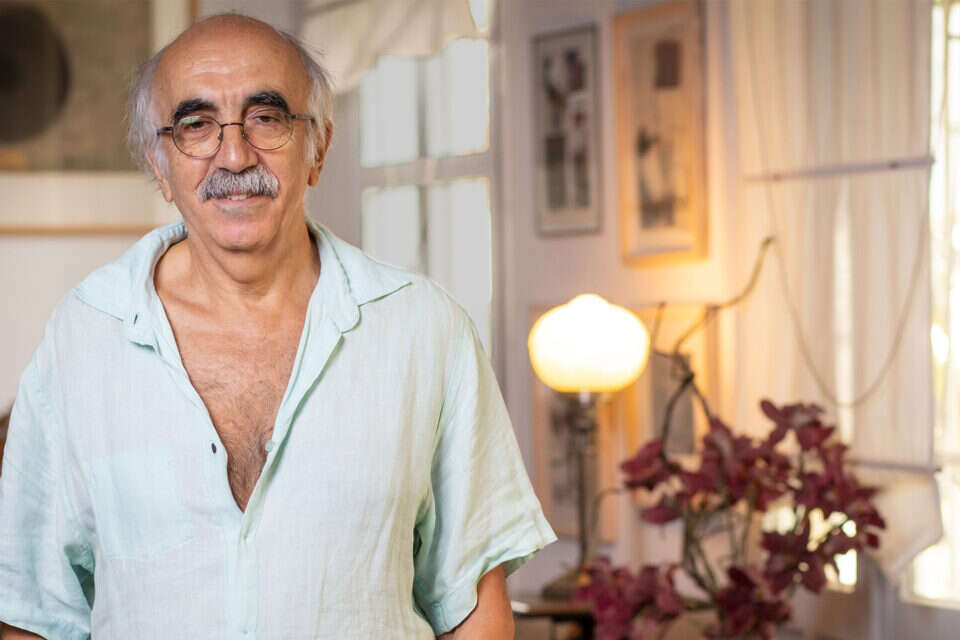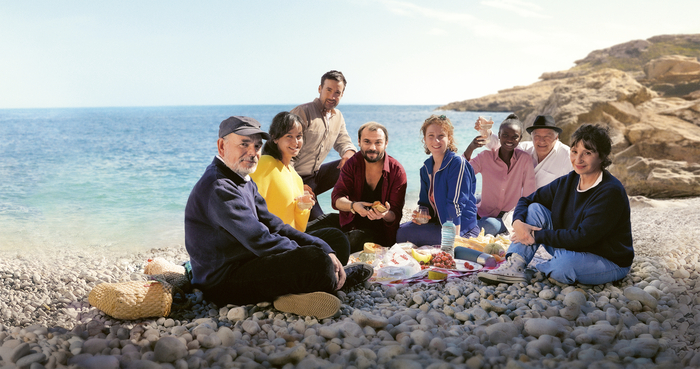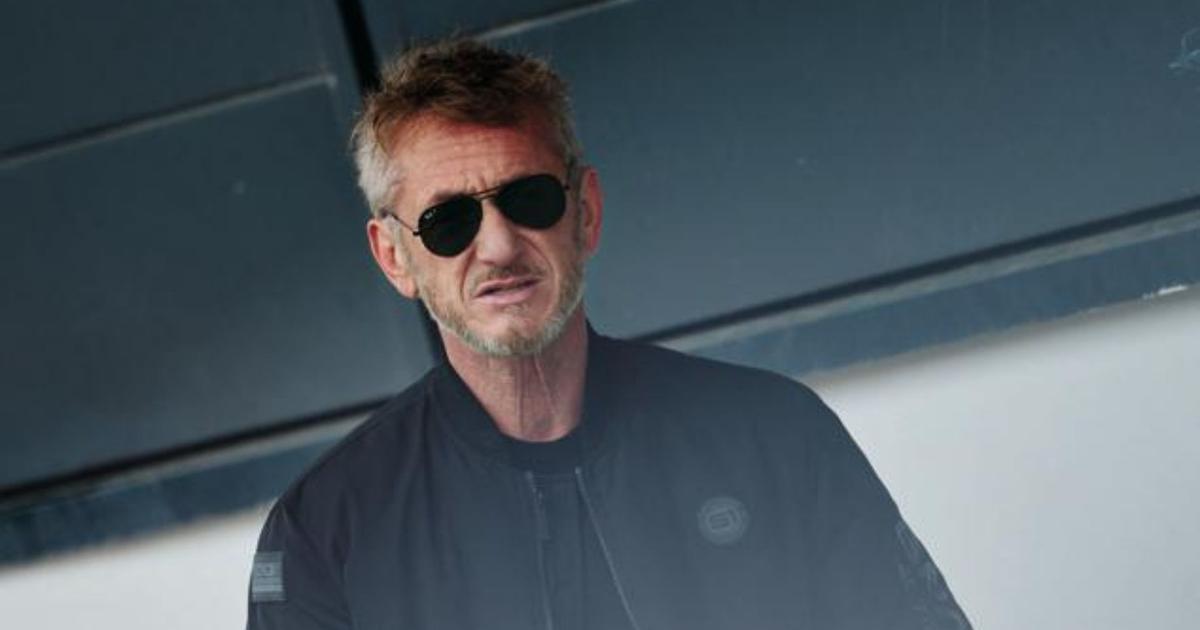Even for a 20th-century Jew, the life story of Jean-Pierre Lledo is unusual in its upheavals. He was born in 1947 in Telsan, a city in northern Algeria, to a Jewish mother and a Spanish father, whose family emigrated from Catalonia to Algeria in the mid-19th century. When Algeria gained its independence from France in 1962, about a million Christian Jews and European settlers fled it.
One of the fugitives was Yado's beloved uncle, Nissim, his mother's brother, who fled to Israel. Yado himself, along with his father Noel and his mother Emily, were among the few non-Muslims who chose to stay in Algeria at the time. His father was a devout communist, who fought against French colonialism and for Algeria's independence, and hoped to fulfill his life's dream: to help create a democratic and multicultural Algeria. Because he believed that Algeria's squad was caused by French colonialism, the father believed that he should not flee with the advent of independence.
Inspired by his father, Jean-Pierre joined the Communist Party, and in the late 1960s traveled to Moscow to study film. There he also met his ex-wife Rashida, an Algerian communist who is also a medical student. She was Muslim and Arab. He was an atheist and the son of a Jewish mother. But what does it all matter, he thought, they are both good and loyal Algerians. They will probably be able to bridge the differences between religion and culture.
Even their children chose mixed names - Jean-Pierre and Rashida's eldest son was given a French name, Serge, and their second daughter was given an Arabic name, Naval. All within the belief that the human spirit is stronger than its shackles, and that Algeria will succeed in establishing a society free from the sediments of the past. All this time, Yado hid from himself and those around him his Jewish origins, and his beloved uncle Nissim.
When he returned to Algeria in the mid-1970s, Ido began directing films.
It soon became one of the most prominent voices in the cultural environment in Algeria.
In the reality of a single government and of one party, he could not really voice all that was on his heart, but managed to gather around him a bunch of intellectuals who came out against censorship in art and literature.
It is therefore not surprising that when the Islamist movement in Algeria intensified in the late 1980s, the intellectual Ido was marked as one of its leading enemies.
He barely escaped an assassination attempt, and fled to France in 1993. There began a new chapter in his life, as an Algerian exile.
He continued to read Algerian newspapers, and surrounded himself with a bunch of intellectuals most of whom dreamed of the day when they could return to their homeland.
Israel, as well as Uncle Nissim who was still alive at the time, were at that time an absolute taboo for him.
They will have to wait a few more good years.
From the movie "Israel: The Forbidden Journey",
It's all Deir Yassin
The latest in a documentary trilogy created by Ido in France, entitled "Algeria: Untold Stories," was banned from screening in his home country immediately after its 2007 release. The reason was that Ido dealt with that film in one of the most powerful taboos in Algerian society - the question of why those million Jews and Christians were forced to flee the country immediately after independence. This is still a very sensitive issue in Algeria, and the authorities are not tolerating discussions about it.
A year later, Yado received an application from Israel - who at the time did not yet know that it would become his new homeland. The Jerusalem Cinematheque asked to invite him to screen the film as part of the annual film festival held in the city. For the first time in years, Jean-Pierre was forced to confront his identity directly.
Until that time, Yado was a fierce anti-Zionist communist who did not even want to hear about the State of Israel.
When his uncle Nissim once invited him to visit Israel, Jean-Pierre replied that he would only come when it became Palestine.
"I was very hesitant then whether to come to the festival in Jerusalem," he says in an interview with "Israel Hashavua" from his home in Jaffa.
"In Algeria and the whole Arab world, when they talked about Israel, they mentioned only two words: Deir Yassin. This is what Israel represented. According to what was said in Algeria, the Jews murdered 300 or 400 Arabs that day. The description was that Israel was a state that oppressed and killed Arabs. "In 1948, and that continues to oppress them to this day. It was a big and scary taboo for me towards Israel."
From the movie "Israel: The Forbidden Journey",
On the other hand, Yido's latest film has been banned from screening in Algeria.
"All my old friends, communist intellectuals, attacked me in the press for daring to deal with what happened during Algeria's war of independence, instead of fighting the country's censorship. I said to myself, 'Your country prevents you from talking, and your friends attack you instead of supporting you.' "I realized I was left alone. I had to decide alone - not out of a commitment to my friends or my country."
His daughter, Nawal, thought the offer from Jerusalem would be a good opportunity to visit relatives in Israel.
"I told myself I would go, and if I saw that Israel was indeed the terrible country I could imagine, I would not return to it again, but if not, at most I would change my mind," says Yido.
Yehuda Camp, corner of Oran
During the visit itself, he barely had time to be impressed by Israel. Here and there he met people, some of them Jews from North Africa, and saw that they were just "pretty normal people," he says with a smile. The little he saw made him think. He walked the streets of Jerusalem, and instead of seeing oppressed or submissive Arabs, as he was told in Algeria, he saw people who go about their daily routine, satisfied and proud of themselves. He was surprised by the ethnic diversity in Israel.
"I thought everyone would be anxious with hats and beards," he says. "This is what you see when you present Israel to the world. In reality I saw people of all kinds. I saw Jews from the Maghreb, who reminded me of the place I came from. In Algeria I fought against the reality where only Arab-Muslims were considered Algerians. Suddenly I find myself in Jerusalem, and see "The multicultural state I wanted to create in Algeria already exists here."
In the Mahane Yehuda market, a memory arose in him that would later change his life.
"I had a feeling I was in the Jewish market in Oran, Algeria," he describes.
"My uncle lived there when I was a child. There was only one street in the Jewish Quarter, and that was Market Street. I went there with my uncle when I was a child. "I arrived in the Judea camp after 60 years. I realized that for me, it was 60 years of a black hole. I decided that I needed to dive into that black hole, and check what had happened in those 60 years inside my head."
The result is an exciting and thought-provoking 11-hour, four-part documentary called "Israel: The Forbidden Journey," which began screening last week in cinemas around the country.
The film describes Yido's physical and mental journey from Algeria to Israel, where he finally settled in 2011.
Yido traces the history of Jewish history in Algeria in the film and learns about the ending chord that he ignored while living there. He presents the calamity experienced by the Jews during the struggle for Algerian independence, and recalls the musician Ramon Larris, the father-in-law of Enrico Macias, who was murdered only because of his Judaism. He tries to dispel the mists of ignorance and the webs of lies that have been diligently woven around the State of Israel: he discovers the "Nakba" and the truth about it, and the expulsion of hundreds of thousands of Jews from Arab countries. He compares the fate of the Arabs of the country, who even when they fought the Jews, could stay in Israel after 1948, compared to the Jews in Arab countries, who could not stay even if they did not fight anyone. He describes in detail the public hanging of Jews in Iraq in 1969, and finds that in Israel, unlike in Arab countries, it is permissible to be in the Islamic movement.
In this journey, of personal, family and national discovery, chilling scenes appear - like an encounter with a Holocaust survivor who recalls a song he has not heard for 70 years, and comes to tears;
But also amusing scenes, like a friend of Yido who runs after the white dome that falls on him at the Western Wall plaza, and runs away from him every time again.
Yido describes anti-Semitism in the Arab world, and tells of Algeria whose leaders spoke multiculturalism in English and French, and in Arabic stressed that Algeria must be Arab and Muslim.
"Jean-Pierre's journey touched my heart because to some extent I share it."
Witness with his partner, Ziva Postek // Photo: Arik Sultan,
"Resurrection of the Jewish People"
The many interviews he conducts in the film present a very rich mosaic of Israeli reality: Bedouin, Jews, Mizrahis, Ashkenazis, and everything in between. These encounters and Yido's point of view are very different from what we are used to seeing in Israeli documentary cinema. This journey brings him to extraordinary human encounters, such as with one Italian Jew, who did not know about his Judaism, and only in San Francisco did he connect with Rabbi Shlomo Carlebach and subsequently immigrate to Israel.
The connection between the various scenes in the film is often associative. It is not the plot that necessarily connects, but the themes that arise and the characters. Ido connects to a very French intellectual tradition, which believes in words and their ability to express the human psyche and thoughts. The film has long shots of a car ride, shot through the car window. In the background, Yado narrates in his voice and raises questions and concerns. These scenes convey the motif of Yido's journey but also allow viewers to see where he is physically throughout Israel. The choice to deploy this cinematic journey over 11 hours allows for a calm, deep and relaxed look, and does not require him to produce forced or artificial dramatic highs. Mostly, it allows for thinking.
In total, Yido's film presents a spiritual journey of redemption that is divided into four parts according to the holidays of Israel, from Yom Kippur, through Hanukkah and Purim - to Passover. In the middle of the eighth decade of his life, and despite all the contradictions in his mind, Yido tries to complete the picture of his life through the film and find his place in it in peace. In the process, a great human drama unfolds of a man whose world is collapsing and a new world is growing before his eyes. Mostly he is tormented by the betrayal of David Nissim, and the fact that he has denied it for so many years.
The one who helped him turn the 250 hours he shot into a film was his partner of the past decade, filmmaker Ziva Postek, who edited the monumental film "Holocaust" by Claude Lantzman. "At first I was very apprehensive," he says. "I did not imagine that an 11-hour film would be made. But Ziva managed to find the right pace. She had experience in this type of work." When asked if his film is similar to Lantzman's, he replies that they are the exact opposite: "Lantzman described the extermination of the Jewish people,And I describe his resurrection. "
Stay, despite the humiliation
In retrospect, Jean-Pierre Ido's complex identity has played a role in his life since time immemorial.
"When we were children," he says, "the Arab children kept talking about 'Arab Algeria' and 'Muslim Algeria,' and I always said to them, 'Non-Muslim Algeria is Algerian.' I wanted to belong. "To that country. If Algeria is only Arab, then I do not belong to it."
The position of his communist father and friends was that there was no difference between Muslims and Jews, white or black, European or African - all Algerians.
"I grew up in that atmosphere. I felt more Algerian than the Algerians themselves."
The first crisis occurred immediately after the establishment of Algeria's independence in 1962. "The Muslims in the country automatically became citizens, but whoever was not a Muslim had to fill out a form and apply for citizenship to the Ministry of Justice. His citizenship became such on probation. I remember that, I was 14. We had a lot of discussions at home. Everyone was angry. Communists. "Like my father fought for independence, sat in jail and was tortured, and now their country tells them they are not Algerian because they are not Muslims. Many then decided to leave. My father decided to stay, despite the humiliation."
The documentaries that Haido directed after returning from the Soviet Union to Algeria in 1976 were subversive from the first moment. At first he dealt with Algerian amateur theater, which dared to engage in subjects which the establishment theater had completely ignored. "I tried to show what the country really looks like," he says, "and not how it is shown in the regime's propaganda films." His second film, which described the health care system, disappeared one day from the editing studios. "To this day I do not know where he is," he says.
He had two options to deal with his situation as a minority in an authoritarian state. "One option is to disappear. To be erased. Not to talk to anyone. You go to work in the morning, come home in the evening, do not talk to the neighbors. They know you are neither Arab nor Muslim, but you are not talking about anything. Not about politics and not at all Another thing, this is one option.
"The second option is to be 'most of all.' Fearful, who fought for freedom of expression. I think that was my way of expressing myself and my difference. I respected the two great taboos in Algerian society - do not talk about what happened during independence in 1962 and do not talk about Israel. "Fear well. My wife's family supported me. They saw me as a hero, because I stayed in Algeria despite the fact that I could move to France. My other milieu was the party."
In 1990, he spoke for the first time in a television interview about his Jewish origins. "The word Jew was probably still too strong for me then," says Yido. "Dirty." The neighbor's husband was a doctor, and a member of the Communist Party like me. I went to him to find out.
His escape from Algeria occurred a few years later. In the country's first free elections in 1991, the Islamist movement came very close to winning an absolute majority in parliament. The military prevented this possibility, carried out a coup and immediately declared the Islamist party illegal. In the ensuing civil war between the Islamists and the government, which lasted about ten years,At least 50,000 people were killed (some estimate the death toll at 200,000).
The first target of the Islamists was members of the security forces, and immediately afterwards - intellectuals.
"They murdered important Algerian writers," says Yido, "and I was considered one of the most prominent intellectuals in the country. I received information that on July 5, 1993, the anniversary of Algeria's independence, many Islamist attacks would be carried out. Five days earlier I decided to flee forever. "France. I later learned from the neighbors that I was on the assassination list. Civilian-clad commandos knocked on our door and introduced themselves as friends. That day there were 67 assassinations in the lives of intellectuals, of which I was supposed to be one."
Between 50,000 and 200,000 deaths a decade.
Algerian peasants armed in the country's civil war, 1998 // Photo: GettyImages,
Avoid the rupture
During his exile in Paris, Ido slowly began to deal with issues he could not deal with as long as he lived in Algeria. The first of these was the forced departure of Algerian Jews and European settlers immediately after independence. The official position in Algeria was that this was a natural move, and that the Europeans were foreign settlers, who had simply returned to their countries of origin.
Yadu knew it was not exactly like that, since one of the leavers was Dudu Nissim, and Jews in Algeria would not be foreign settlers but residents for two thousand years, long before the Muslim occupation. "I did not think then like everyone else," he says, "but I could not go against it as long as I was in Algeria. It could not be done there. It was not possible to go against that narrative. It was taboo."
But Israel still remains an unknown land, hated even. "For me, this was not only a political problem of Israel vis-à-vis the Palestinians," he describes, "but also a problem of identity. I knew that my mother was Jewish and that my father was not Jewish, but I never examined in depth what it means to be Jewish. Aware that if I was interested in Israel while perceiving myself as an Algerian, it would cause a rift with Algeria, with my friends, with everyone. As long as someone is in Algeria, it is impossible otherwise, just to be against Israel. "It is not at all possible to raise the question of the treatment of Israel. It is impossible at all to imagine a discussion about it, because it is clear to you that this will have serious consequences."
To the question of why Israel arouses such strong feelings in Algeria and in the Arab world in general, Yadu answers on two levels.
"France brought colonialism to Algeria," he says, "and the Algerians hate France, but that does not stop them from visiting it all the time. In the case of Israel, there is the political issue, of 1948, which the Arabs have not actually accepted to this day. The establishment of the State of Israel.
"But it sits on a deeper religious issue, of Islam's attitude toward Judaism.
Classical Muslim texts recount how Muhammad's forces defeated the Jews among the Khyber.
It comes to this day, when Arabs demonstrate, even within Israel, they call 'Khayber-Khaybar, Ya Yehud', to commemorate that battle in which the Jews were defeated.
The political problem is based on a deeper religious background. "
In the second body many
Yado's decision to accept the invitation of the Jerusalem Cinematheque and visit Israel in 2008 completely freed all the demons. All his friends, intellectuals and writers, even those who live in France, and throughout the entire Arab world, by no means begged him not to come to Israel. One of them called him a few dozen times on the eve of his flight to try and persuade him to avoid the visit. When he realized that they had a strong opinion, he told him that their relationship was over. "My best friend," says Yido, "who was also an Algerian exile in Paris, began to approach me in the second person plural instead of in the second person singular, a clear sign of distance in French. He told me not to approach him any more."
By the end of that year, when the fighting broke out in Gaza as part of Operation Cast Lead, Yado had already begun to change its position in favor of Israel.
"I saw what was really going on here," he says.
"When the war started, I saw terrible things being said in Algerian mosques against Jews. Everyone in Algeria was then against Israel and against the Jews. Since they still knew me, I wrote that we, as Algerian intellectuals, must not remain silent in the face of these expressions of anti-Semitism.
"It was the first time in Algeria's intellectual history that anyone came out so clearly against anti - Semitism. I did not even talk about Israel, but only about anti - Semitism."
The response of his colleagues was to ask for whom he works, since coming out against anti-Semitism is surely a matter of the "institution."
Yado's relationship with his wife Rashida deteriorated, and the hero who was once in the eyes of her family - disappeared as if he were not.
His party also turned its back on him.
Perhaps the most painful of all is the breakup with his eldest son, Serge, who still lives in Algeria and works in the field of cinema. "He's trying to be more Algerian than the Algerians," Yido says. "His main problem, in my opinion, is exactly the same problem I had: the inability to talk about Israel in a normal way. He defines himself as anti-Israel. When I first immigrated to Israel, at first, we still had a certain connection, via email. I would send him articles about Israel, but he immediately told me that if I continued to send him such materials, he would send them directly to spam. For more than a year we have no contact. As the one who brought him into the world, and nothing more. "
***
Uncle Nissim did not have time to meet: he died in 2005. In the film, Yado meets his aunt and her three children, his cousins. Despite the initially charged encounter, they accept him into their arms, almost as if their families had never separated.
In one of the scenes in the film, perhaps the only one in which Ido passes behind the camera to its front, Ido ascends to the uncle's grave and apologizes. The circle closes. The man who defined himself as an Algerian until the age of 60 now says: "Algeria for me is over. I no longer have Algerian friends, and I no longer follow Algerian newspapers. I also no longer feel like a communist. The journey is over. "I understand that the State of Israel is the result of a struggle for the freedom of the Jewish people. I was in favor of the struggle for independence of Algeria and the people of Vietnam, and of all peoples, so why do Jews have no right to freedom? Why can they not live as a free people?"
Now, at 74, he has set himself two new tasks.
The first is to learn the Hebrew language to its core.
The second is to delve into Judaism.
In the past year, he has written another book, in which he analyzes in detail the connection between Marxism and Judaism.
It seems that for Jean-Pierre Yido, the journey may be over, but it will probably not be completed.








